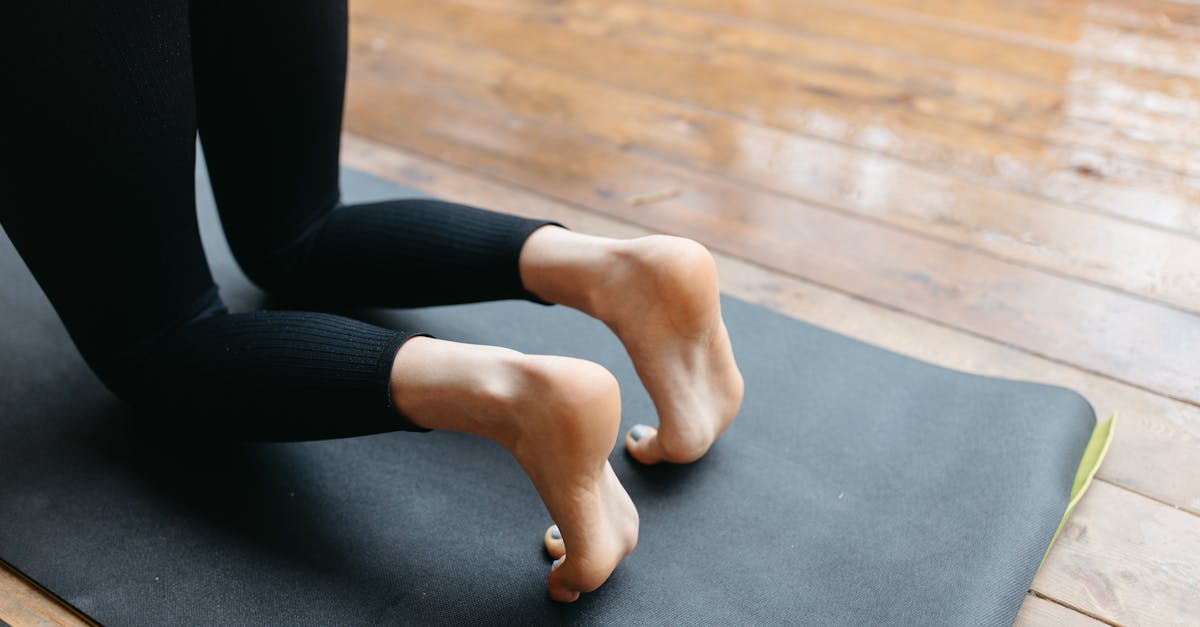|
In Short, overcoming anxiety-induced dizziness is a crucial focus for individuals seeking relief from the overwhelming sensations of lightheadedness and imbalance caused by anxiety. This article outlines effective strategies for managing dizziness, aiming to improve mental clarity and overall well-being. Understanding the connection between anxiety and dizziness empowers individuals to regain their balance and find serenity in their daily lives. Techniques such as controlled breathing, hydration, and progressive muscle relaxation are highlighted as vital tools for alleviating symptoms and restoring composure during anxious moments. |
Experiencing dizziness related to anxiety can be disconcerting and challenging. Understanding the connection between these two conditions is crucial for effective management. Techniques such as controlled breathing, maintaining hydration, and practicing progressive muscle relaxation can alleviate symptoms. Awareness of emotional states and accepting feelings of anxiety are also essential in fostering a path to recovery, ultimately allowing individuals to regain their serenity and stabilize their mental well-being.

Experience Wellness with Pulse Align
At Pulse Align, we offer a non-invasive, innovative approach designed to help restore your body’s natural balance and posture through gentle, imperceptible pulses. This holistic method encourages the body to recalibrate itself, often leading to a noticeable reduction in muscle and joint tension, enhancing your overall sense of well-being.
Supporting Your Body’s Natural Processes
Rather than addressing discomfort directly, Pulse Align fosters an environment where your body can naturally find alignment and balance. This approach promotes muscle tone symmetry and an improved posture, which many clients find contributes to a more comfortable and harmonious daily experience.
Personalized Wellness Experience
Each client at Pulse Align is unique, and our tailored services reflect that. Many individuals have shared uplifting stories about their journey, noting improvements in neck and back tension and a greater sense of overall wellness. Our focus on individual experiences emphasizes enhanced posture, comfort, and tranquility without the use of invasive measures.
Get Started on Your Journey to Well-Being
We invite you to learn more about how Pulse Align can support your wellness journey. Visit our website to find nearby locations in cities such as La Prairie, Mont-Royal, Terrebonne, and more. Book a consultation today for yourself or your family. Remember, Pulse Align complements your existing healthcare services, focusing on restoring the body’s natural ability to find equilibrium.
Disclaimer: Pulse Align services are designed to support various client wellness journeys, but they do not replace medical care, and clients are encouraged to remain under the supervision of their healthcare team for any existing conditions.
Discover the path to improved posture and well-being at Pulse Align today!
- Controlled Breathing: Focus on deep, slow breaths to diminish anxiety.
- Stay Hydrated: Drink water regularly to prevent dehydration-related dizziness.
- Practice Mindfulness: Engage in mindfulness techniques to ground yourself in the moment.
- Physical Activity: Incorporate gentle exercises like walking or yoga to enhance stability.
- Progressive Muscle Relaxation: Use this technique to release tension in your body.
- Emotional Acceptance: Acknowledge your feelings without judgment to assist in managing anxiety.
- Consult a Professional: Seek guidance from healthcare providers if symptoms persist.
- Keep a Dizziness Journal: Track episodes to identify patterns and triggers.

Experiencing dizziness as a consequence of anxiety can be disorienting and frightening. This condition often leads to a cycle of unease, where the fear of dizziness exacerbates feelings of anxiety, creating a challenging situation for many individuals. Understanding strategies to manage this dizziness can empower you to reclaim your serenity and stability. Below, we explore practical tips for overcoming anxiety-induced dizziness, focusing on techniques that promote calmness and clarity.
Understanding the Connection Between Anxiety and Dizziness
The relationship between anxiety and dizziness is complex. When anxiety levels rise, the body’s physiological response includes changes such as increased heart rate and altered breathing patterns. These changes can result in hyperventilation and fluctuations in blood circulation, both of which can contribute to feelings of dizziness or lightheadedness. Recognizing this interplay is crucial for managing and alleviating symptoms effectively.
Practice Controlled Breathing
One of the most beneficial techniques for managing dizziness related to anxiety is controlled breathing. Engaging in deep, diaphragmatic breathing can help to counteract hyperventilation and calm your body’s stress response. A practical technique is the 4-7-8 method: inhale deeply through your nose for four counts, hold your breath for seven counts, and exhale slowly through your mouth for eight counts. Implementing this strategy can not only ease dizziness but also foster a greater sense of tranquility and relaxation.
Stay Hydrated
Another vital aspect of managing dizziness is ensuring proper hydration. Dehydration can amplify symptoms of dizziness, particularly during anxious moments. Aim to drink adequate water throughout the day and keep a water bottle within reach, especially in stressful situations. Staying hydrated is a simple yet effective strategy to stabilize your body and reduce feelings of lightheadedness.
Incorporate Physical Activity
Regular physical activity plays an essential role in managing anxiety and improving overall well-being. Gentle exercises such as walking, yoga, or stretching not only promote physical fitness but also help in alleviating tension and stress levels. Incorporating movement into your daily routine can cultivate a sense of balance and calm, providing a natural antidote to anxiety-induced dizziness.
Utilize Progressive Muscle Relaxation
Progressive muscle relaxation is a technique that involves systematically tensing and then relaxing different muscle groups throughout your body. This practice helps to release physical tension, redirecting your focus away from anxiety and dizziness. Take a few moments each day to engage in this exercise, allowing yourself to find comfort and serenity as you gradually let go of stress.
Seek Professional Guidance
If anxiety-induced dizziness persists, it may be beneficial to consult with a healthcare professional. Engaging in psychotherapy or cognitive-behavioral therapy can provide you with valuable tools and insights to manage anxiety effectively. Addressing the root causes of anxiety often leads to an alleviation of associated dizziness, underscoring the importance of a tailored, professional approach to treatment and support.
Embrace Emotional Acceptance
Emotional acceptance is key to navigating anxiety and dizziness. Allow yourself to experience your feelings without judgment, recognizing that these sensations are temporary states. Trust in your body’s ability to recover, and foster resilience as you move toward a place of calm. This mindset can empower you in your journey toward stability and well-being.
| Strategies | Description |
|---|---|
| Controlled Breathing | Practice deep breathing to calm your nervous system and ease feelings of dizziness. |
| Stay Hydrated | Ensure sufficient water intake to prevent dehydration, which can exacerbate dizziness. |
| Progressive Muscle Relaxation | Engage in muscle relaxation techniques to release tension and promote relaxation. |
| Mindfulness Practices | Incorporate mindfulness exercises to enhance mental clarity and focus. |
| Gentle Movement | Incorporate light physical activity to stimulate circulation and regain balance. |
| Emotional Acceptance | Recognize and accept feelings of anxiety as part of the healing journey. |
| Comfortable Positioning | When feeling dizzy, sit or lie down to prevent falls and enhance stability. |
| Connect with Nature | Spend time outdoors to foster a sense of grounding and serenity. |
| Routine Establishment | Maintain a consistent daily routine to provide structure and reduce anxiety triggers. |
| Supportive Community | Engage with a supportive network to share experiences and reduce feelings of isolation. |

Client Testimonials: Embracing Serenity Through Holistic Recovery
Clients from La Prairie have shared remarkable transformations in their ability to overcome anxiety-induced dizziness thanks to Pulse Align’s dedicated approach. By utilizing gentle, imperceptible pulsation techniques, many have reported feeling a renewed sense of balance and clarity. “Since starting my sessions at Pulse Align, I’ve noticed a significant decrease in my dizziness, which has positively impacted my daily life. I feel more centered and in control,” expressed a satisfied client from La Prairie.
In Mont-Royal, clients appreciate how this service not only addresses immediate discomfort but also works alongside their healthcare teams to foster overall wellness. “The holistic techniques taught at Pulse Align have empowered me to manage my anxiety effectively. I can finally enjoy activities without the fear of dizziness taking over,” remarked another local participant. This personalized care allows individuals to embark on a path of natural recovery.
From Terrebonne to Sainte-Marie, reports have echoed similar sentiments. Numerous individuals have uncovered an effective option for coping with anxiety-induced symptoms. “I’ve regained the confidence to engage in social gatherings without worry. The gentle pulsation methods have noticeably reduced my symptoms,” said a client from Terrebonne. This pleasant transformation serves as a testament to the potency of Pulse Align’s unique offerings.
In Les Escoumins, many have noted enhancements not just in alleviating dizziness, but in improving their overall mental health. “It’s been a journey filled with newfound peace and stability. I treasure how the Pulse Align team genuinely cares for my well-being and offers guidance every step of the way,” shared a client from this area. This supportive environment plays a crucial role in their recovery.
Chicoutimi residents have similarly praised their wellness experience at Pulse Align. “The techniques I learned helped me reconnect with my body’s natural rhythms. The fear of dizziness is no longer paralyzing, thanks to the compassionate support at Pulse Align,” explained a delighted client from Chicoutimi. Their focused strategies have shown significant improvements in managing symptoms, fostering resilience, and enhancing quality of life.
In neighboring regions like Châteauguay and Saint-Jérôme, the excitement over Pulse Align’s services continues to grow. Clients express gratitude for personalized experiences tailored to their unique needs. “Working with Pulse Align has been life-changing. I am no longer overwhelmed by anxiety-induced dizziness. Their holistic approach complements my conventional medical care perfectly,” stated a client from Châteauguay.
As individuals across Panama City also discover the remarkable benefits of Pulse Align’s offerings, it’s clear that these services resonate far and wide. To explore how you can experience similar health advancements, we invite you to visit Our Clinics and find a location nearest you. Pulse Align not only supports your wellness journey but actively collaborates with your healthcare team to ensure comprehensive care for you and your family.
Anxiety-induced dizziness is a common yet often misunderstood condition that can significantly disrupt one’s quality of life. Many individuals experience dizziness as a consequence of anxiety, which can manifest through sensations of lightheadedness, unsteadiness, or even a spinning sensation. Understanding the interplay between anxiety and these physical symptoms is essential for those seeking relief and finding their calm. Experts like Dr. Sylvain Desforges have dedicated their careers to addressing these complexities and helping patients navigate the challenges associated with anxiety-induced dizziness.
Dr. Sylvain Desforges, an esteemed professional in the fields of osteopathy, naturopathy, and manual medicine, stands at the forefront of this innovative approach to healthcare. As the founding president of TAGMED clinics and the ACMA association, he has committed himself to transforming how chronic pain, including anxiety-related issues, is managed. His extensive expertise allows him to provide valuable insights into the connection between mental health and physical symptoms, particularly dizziness.
Throughout his career, Dr. Desforges has emphasized the importance of evidence-based care in optimizing health and well-being. He employs advanced technologies such as spinal decompression, laser therapy, and shockwave therapy within a holistic framework tailored to meet the unique needs of each patient. By integrating advanced treatment modalities, he aims to alleviate not only the symptoms of dizziness but also the underlying anxiety that often accompanies them.
One critical aspect of managing anxiety-induced dizziness is understanding the physiological responses triggered by anxiety. When anxiety peaks, the body undergoes a series of stress responses that can lead to hyperventilation, changes in heart rate, and digestive disturbances. These responses can create an overwhelming sensation of dizziness, which in turn, feeds a cycle of anxiety and discomfort. Dr. Desforges’ approach involves addressing these symptoms through both physical interventions and emotional support, ensuring a comprehensive path toward recovery.
Among the effective strategies Dr. Desforges recommends for overcoming dizziness related to anxiety are deep breathing exercises and progressive muscle relaxation techniques. Controlled breathing not only helps to mitigate dizziness but also serves to calm the nervous system, paving the way for a more balanced physical and emotional state. By encouraging patients to engage in these techniques, he fosters a sense of empowerment that is essential for managing anxiety-related symptoms.
Staying hydrated is another key factor that can greatly influence symptoms of dizziness. Dr. Desforges advocates for individuals to maintain adequate fluid intake, particularly during periods of heightened anxiety. Dehydration can exacerbate feelings of lightheadedness and fatigue, leading to further anxiety. His emphasis on lifestyle modifications illustrates how simple yet effective changes can improve overall well-being, making a substantial difference in how individuals manage their anxiety-induced dizziness.
Moreover, physical activity is an important component of his treatment philosophy. Regular exercise enhances mood, reduces stress levels, and stabilizes blood flow, all of which contribute to a reduced incidence of dizziness. Dr. Desforges encourages patients to find enjoyable forms of exercise that promote both mental and physical health, ultimately aiding in developing resilience against stressors that may trigger anxiety.
By creating a supportive environment within his clinics, Dr. Desforges fosters open communication and collaboration with patients. This approach not only enhances trust but also encourages individuals to share their experiences and challenges openly. This partnership model is instrumental in tracking progress and making necessary adjustments to treatment plans, which is essential for addressing complex issues like anxiety-induced dizziness.
In summary, overcoming anxiety-induced dizziness requires a multifaceted approach. Through the expertise and compassionate care of professionals like Dr. Sylvain Desforges, patients can find effective strategies for managing their symptoms and rediscovering their inner calm amidst the challenges of anxiety. By integrating physical interventions with mental health support, individuals can embark on a transformative journey toward improved well-being and serenity.
Neuro-Vertebral Decompression Technology by TAGMED: A Comprehensive Overview
Mechanism of Action
The neuro-vertebral decompression technology offered by TAGMED operates on the principle of applying a controlled and progressive traction force to the spine. This innovative approach facilitates the creation of additional space between the vertebrae, effectively reducing the pressure exerted on both the intervertebral discs and the nerve roots. By increasing the intervertebral space, the technology promotes a significant enhancement in fluid circulation within the targeted areas, which is crucial for nutritional supply and waste removal. This process contributes not only to a reduction in inflammation but also to the alleviation of chronic pain symptoms associated with conditions such as herniated discs, bulging discs, and spinal or foraminal stenosis.
Specific Benefits
This non-invasive method has been shown to relieve chronic pain effectively while addressing symptoms related to various spinal disorders. By minimizing the pressure on nerve structures and optimizing the flow of nourishing fluids around the affected discs, TAGMED’s approach facilitates quicker recovery times. As patients report a notable decrease in pain levels, they often experience an overall improvement in their quality of life. The technique empowers individuals to engage more fully in daily activities, watching their overall health and wellness flourish as a direct result of pain relief.
Comparison with Other Treatments
When comparing TAGMED’s neuro-vertebral decompression technology to conventional treatment options such as pain medications, corticosteroid injections, surgical procedures, or traditional physical therapy, the unique advantages of this method become evident. Unlike invasive treatments that come with a range of risks and complications, TAGMED’s approach is non-invasive, focusing on the natural healing processes of the body. Patients can benefit from reduced reliance on medications, which often carry side effects, and many find that recovery times tend to be shorter, allowing them to return to their daily routines more promptly.
Case Studies or Testimonials
Numerous individuals have reported positive outcomes after undergoing TAGMED’s neuro-vertebral decompression therapy. For example, patients suffering from debilitating chronic pain due to spinal disorders have shared their experiences of significant and lasting reductions in symptoms. Testimonials often reflect a quicker return to daily activities and a marked decrease in dependence on pain relief medications. One patient mentioned, “After my treatments, I was able to play with my kids again—something I hadn’t done in months due to my back pain. The pain relief has allowed me to feel like myself again.” Such evidence underscores the therapy’s efficacy and potential as a valuable resource in managing chronic pain symptoms.
As TAGMED continues to innovate, its commitment to providing effective solutions for managing pain and enhancing well-being remains steadfast, tailoring its approach to meet the unique needs of each patient.
Finding Your Calm: Overcoming Anxiety-Induced Dizziness
Overcoming anxiety-induced dizziness is a multifaceted journey, where understanding and management strategies play pivotal roles. Anxiety often manifests physically, creating a cycle of fear and discomfort that can exacerbate feelings of dizziness. Recognizing the connection between these two experiences is the first step toward reclaiming your sense of control.
Implementing effective techniques is essential in this process. Deep breathing exercises serve as a powerful tool to counteract the body’s stress response. By focusing on slow, controlled breaths, you can significantly reduce feelings of lightheadedness and panic, fostering a sense of internal stability. Staying hydrated is also crucial, as dehydration can amplify dizziness. Making hydration a priority can alleviate many physical symptoms associated with anxiety.
Developing emotional awareness is equally important. Accepting feelings of anxiety as a natural part of your healing process can shift your perspective and foster resilience. Journaling your experiences can help identify triggers that lead to anxiety-induced dizziness, empowering you to approach these situations with greater insight. Progressive muscle relaxation is another technique that can redirect focus, alleviating physical tension and enhancing overall calm.
In cases where dizziness becomes persistent or overwhelming, seeking professional help is essential. Therapists can provide valuable support through psychotherapy to address anxiety disorders. Coupled with lifestyle changes, including regular physical activity and mindfulness practices, individuals can navigate their symptoms more effectively and develop a sustainable sense of well-being.
Ultimately, overcoming anxiety-induced dizziness is about finding balance. By integrating these strategies into your daily routine, you can cultivate a path toward lasting serenity and improved mental clarity.

Do you suffer from a chronic condition that responds little or not at all to conservative treatments?
In a world where everyday stressors can lead to feelings of unease and discomfort, finding a path towards balance becomes essential. Pulse Align offers an innovative, non-invasive method that supports the body’s natural recalibration process through gentle, imperceptible pulses. This approach aims to restore the body’s natural balance and posture, helping clients achieve overall wellness and comfort. Through this holistic viewpoint, we recognize that many individuals seek alternative solutions to manage feelings of dizziness and tension, and we are here to provide a supportive environment to explore those options.
At Pulse Align, our focus is not on addressing discomfort or conditions directly; instead, we empower the body to recalibrate itself naturally. Clients often report amazing improvements in comfort and posture, as our innovative methods help cultivate muscle tone symmetry. This results in an enhanced sense of well-being that can make a significant impact on everyday life. By embracing this gentle alternative, individuals may experience improvements in how they feel overall—both physically and emotionally.
Personalization is at the heart of Pulse Align’s approach. We have heard uplifting testimonials from clients who have found relief from discomfort, encouraging them to regain a sense of balance in their lives. Many have shared positive experiences regarding reduced tension in the neck and back and a newfound tranquility that helps establish better posture. Our friendly, knowledgeable team is dedicated to meeting each client’s unique needs, ensuring that everyone receives tailored support on their wellness journey.
We invite you to explore the numerous benefits offered at Pulse Align by visiting our website. You can find more information on our services, locate nearby facilities in towns such as La Prairie, Mont-Royal, and Terrebonne, and book a consultation for yourself or your family. Importantly, we emphasize that Pulse Align complements your existing healthcare services. Our gentle, non-invasive methods can be integrated with your overall wellness strategy, fostering a harmonious balance as you reclaim your health.
To learn more about our services and book an appointment, visit our website: Pulse Align. Join us today as we support your journey toward improved well-being, posture, and natural balance.
Frequently Asked Questions
Vértigo
Les problèmes de cou (cervicaux) causent-ils des vertiges ?
Des tensions cervicales peuvent contribuer à une sensation d’instabilité, mais les vertiges cervicogéniques purs sont moins fréquents.
¿La diabetes puede causar vértigos?
La hipoglucemia puede causar mareos, pero no es un verdadero vértigo.
¿Los vértigos son más comunes en personas mayores?
Sí, con la edad aumentan los trastornos del equilibrio, y el vértigo es una causa común de caídas.
Les exercices d’équilibre sont-ils bénéfiques ?
Oui, les exercices d’équilibre, associés à la kinésithérapie vestibulaire, aident à améliorer la stabilité.
Are tinnitus and vertigo often associated?
In Meniere’s disease, tinnitus (ringing) is common. Not all vertigo causes involve tinnitus.
What is Meniere’s disease?
It’s an inner ear condition characterized by vertigo attacks, tinnitus, and fluctuating hearing loss.
¿Las gafas mal graduadas influyen en los vértigos?
Una corrección visual inadecuada altera la información sensorial, contribuyendo a la inestabilidad.
¿Se puede prevenir el vértigo?
Evitar cambios bruscos de posición, mantener buena hidratación, tratar problemas auditivos o de tensión arterial ayuda a prevenir el vértigo.
La respiration profonde aide-t-elle à calmer un vertige ?
Une respiration lente et profonde peut réduire l’anxiété et aider à mieux gérer la sensation de vertige.
Does body position influence vertigo?
Yes, with BPPV, changing head position (lying down, turning in bed) can trigger vertigo episodes.
Zoé Rousseau believes that knowledge is the most powerful step toward healing—and she’s here to illuminate the path forward for anyone facing the challenges of vertigo. At Pulse Align, Zoé not only highlights the latest breakthroughs in neuromodulation and non-invasive health technologies but also translates complex research into practical, everyday guidance. Her approach is grounded in empathy and fueled by a genuine drive to help readers find balance, both literally and figuratively. From exploring advanced treatments to sharing firsthand patient stories, Zoé’s heartfelt advocacy ensures that no one has to face the spinning world of vertigo alone.
Medical Disclaimer
The information and advice provided on this site do not replace the advice, diagnosis, or treatment of a healthcare professional. Please note that the author of this article is neither a doctor nor a specialist in a medical specialty as defined by the Collège des médecins du Québec. Manual medicine, functional medicine, and sports medicine as described on this site exclude any medical treatment or diagnosis made by a doctor or medical specialist. Always consult your doctor for any medical questions. For more details, please read our complete Legal Notice.




